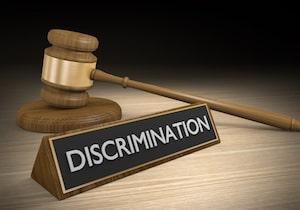Recent Blog Posts
Recognizing Racial Discrimination Based on Work Terms or Duties
 You may feel that you have been treated in a negative or unfair manner at work because of your race, yet be unsure whether it rises to the level of illegal racial discrimination. It can be difficult to determine whether a single employer decision that appears to be racially biased is actually a violation of your rights under the federal and/or Pennsylvania state civil rights laws.
You may feel that you have been treated in a negative or unfair manner at work because of your race, yet be unsure whether it rises to the level of illegal racial discrimination. It can be difficult to determine whether a single employer decision that appears to be racially biased is actually a violation of your rights under the federal and/or Pennsylvania state civil rights laws.
Some employer decisions about your work terms or duties may not appear to be discriminatory on their face, but can be proven to be discriminatory when all employee records are reviewed. Some examples include:
- Offering different work terms or conditions to one race than to others
- Assigning duties or responsibilities based on an employee's race
- Limiting promotion opportunities to those of a particular race
Addressing Race Discrimination Complaints Under Federal and State Laws
 Given that racial discrimination by employers is prohibited nationwide by the U.S. Civil Rights Act, you may wonder why Pennsylvania has passed a virtually identical law at the state level. You may also wonder how the federal and state agencies work together to investigate race discrimination complaints without duplicating each other’s efforts.
Given that racial discrimination by employers is prohibited nationwide by the U.S. Civil Rights Act, you may wonder why Pennsylvania has passed a virtually identical law at the state level. You may also wonder how the federal and state agencies work together to investigate race discrimination complaints without duplicating each other’s efforts.
Federal vs. Pennsylvania State Laws on Race Discrimination
Federal law. Title VII of the Civil Rights Act of 1964 prohibits discrimination on the basis of race (and several other factors) by employers with 15 or more employees. This law established the federal Equal Employment Opportunity Commision (EEOC), which is tasked with publishing regulations and guidelines to help employers understand and comply with the law, investigating and resolving discrimination complaints, and generally enforcing the law.
Racial Discrimination By Employers Continues to Occur in Pennsylvania
 If you take a careful look around your workplace, you may honestly be able to say that you see no evidence of racial discrimination. However, not everyone in Pennsylvania can say that. Employer race discrimination continues to be surprisingly common in the state.
If you take a careful look around your workplace, you may honestly be able to say that you see no evidence of racial discrimination. However, not everyone in Pennsylvania can say that. Employer race discrimination continues to be surprisingly common in the state.
In fact, the federal Equal Employment Opportunity Commission (EEOC) received 1,195 race-based employment discrimination charges from Pennsylvania in 2017, and it has received a roughly similar number each year since 2011. Pennsylvania ranked seventh among the 50 states in race-based complaints in 2017. Texas had the largest number of charges (2,999), followed by Florida, Georgia, California, Illinois, and North Carolina. It should also be noted, however, that the EEOC found that 75% of all U.S. race-based charges were unsupported by the evidence.
To provide an idea of what types of racial discrimination charges are still being filed against employers in Pennsylvania, here are two recent cases that appeared in the news in 2018:
When Can I Sue My Employer for Racial Discrimination in Pennsylvania?
 Virtually all U.S. employers, regardless of size, have an employee handbook that clearly states a company policy against racial discrimination and harassment. Employees are typically required to sign a form stating that they have read and agree to these policies. Companies hold harassment awareness training sessions. Job postings state that the company is an Equal Opportunity Employer whose employment decisions “shall be made without regard to race, creed, color, or any other basis protected by federal, state, or local law.” All of these measures are meant to ensure that the employer complies with Title VII of the federal Civil Rights Act of 1964, which specifically prohibits racial discrimination and applies to all employers with 15 or more employees.
Virtually all U.S. employers, regardless of size, have an employee handbook that clearly states a company policy against racial discrimination and harassment. Employees are typically required to sign a form stating that they have read and agree to these policies. Companies hold harassment awareness training sessions. Job postings state that the company is an Equal Opportunity Employer whose employment decisions “shall be made without regard to race, creed, color, or any other basis protected by federal, state, or local law.” All of these measures are meant to ensure that the employer complies with Title VII of the federal Civil Rights Act of 1964, which specifically prohibits racial discrimination and applies to all employers with 15 or more employees.
However, racial discrimination and harassment persist in some companies and some geographic areas. Sometimes it is subtle or hidden, making you unsure whether you are justified in filing a complaint against your employer.
Eight Men Allege Racial and Age Discrimination by High-End Department Store
 Every citizen of the United States has the right to be treated with dignity and respect, regardless of age, skin color, ancestry, sexual orientation, or any other characteristics they may have. While no rule could possibly prevent every insult or instance of exclusion, there are laws in place to prevent discrimination in the workplace on the basis of certain personal characteristics. Sexual harassment—a form of sex-based employment discrimination—has been at the forefront of public consciousness for the last year or so, but other types of discrimination also occur every day throughout the country.
Every citizen of the United States has the right to be treated with dignity and respect, regardless of age, skin color, ancestry, sexual orientation, or any other characteristics they may have. While no rule could possibly prevent every insult or instance of exclusion, there are laws in place to prevent discrimination in the workplace on the basis of certain personal characteristics. Sexual harassment—a form of sex-based employment discrimination—has been at the forefront of public consciousness for the last year or so, but other types of discrimination also occur every day throughout the country.
One of New York City’s best-known department stores is currently facing a lawsuit filed by eight former employees—all of whom are men and most of whom are older and black. The men say that Saks Fifth Avenue discriminated against them on the basis of age and race. They also claim that they were treated much differently than workers who were younger and white were treated.
The Spotlight is on Office Romances in Light of Sexual Harassment Concerns
 The office romance is the basis of numerous highly-successful TV shows and movies. For example, Leslie Knope nearly lost her position as city councilor after having a secret relationship with her boss on the hit show Parks and Recreation. Likewise, the show The Office centered largely around a relationship which forms between two co-workers. While things almost always work out for the best in TV relationships, the reality of office relationships is often much gloomier. Office romances can lead to accusations of sexual harassment and leave employees confused and uncomfortable.
The office romance is the basis of numerous highly-successful TV shows and movies. For example, Leslie Knope nearly lost her position as city councilor after having a secret relationship with her boss on the hit show Parks and Recreation. Likewise, the show The Office centered largely around a relationship which forms between two co-workers. While things almost always work out for the best in TV relationships, the reality of office relationships is often much gloomier. Office romances can lead to accusations of sexual harassment and leave employees confused and uncomfortable.
The Close Quarters of Many Work Environments May Contribute to Office Romances
For many Americans, their job is their life’s passion. Many individuals spend upwards of 50-60 hours a week in close proximity to their co-workers. For many professionals, it can be difficult to spend a great deal of time with someone they enjoy and not develop romantic or sexual feelings for him or her. However, office romances can be risky. Sexual or romantic relationships between a boss and a subordinate are especially dangerous. A supervisor who has a relationship with a subordinate may be accused of quid pro quo sexual harassment. The subordinate may feel as those he or she has no choice but to consent to the relationship, even if this was not the intent of the supervisor. Situations like these can quickly develop into full-blown sexual harassment cases.
Understanding Hostile Work Environment Sexual Harassment Laws
 Every employee deserves to feel safe at work and to be paid fairly for their efforts. Employees have certain rights, called workplace rights, which are guaranteed by law. Title VII of the the Civil Rights Act of 1964 made it officially illegal for businesses to discriminate on the basis of "race, color, religion, sex or national origin." The Lily Ledbetter Fair Pay Act of 2009 reinforced workplace rights and added further protections for women and minorities. Sexual harassment is a form of sex discrimination protected against by both federal and state law. Unfortunately, sexual harassment in the workplace continues to be a problem in the United States.
Every employee deserves to feel safe at work and to be paid fairly for their efforts. Employees have certain rights, called workplace rights, which are guaranteed by law. Title VII of the the Civil Rights Act of 1964 made it officially illegal for businesses to discriminate on the basis of "race, color, religion, sex or national origin." The Lily Ledbetter Fair Pay Act of 2009 reinforced workplace rights and added further protections for women and minorities. Sexual harassment is a form of sex discrimination protected against by both federal and state law. Unfortunately, sexual harassment in the workplace continues to be a problem in the United States.
Hostile Work Environment Harassment Creates a Threatening Work Atmosphere
According to the law, there are two types of sexual harassment. Hostile work environment and quid pro quo harassment. Hostile work environment harassment involves behaviors and remarks which create an abusive or hostile work environment. The law specifies that the offensive behavior or remarks have to be “severe and pervasive” enough to interfere with the affected employee’s ability to do his or her job. Isolated incidents or trivial offensive behaviors may not meet the legal definition of sexual harassment.
Men Are Victims of Sexual Harassment Too
 Never has the nation’s attention been more focused on sexual misconduct than in the last few years. Many influential and famous men have been accused of sex crimes ranging from violent sexual assault to workplace sexual harassment.
Never has the nation’s attention been more focused on sexual misconduct than in the last few years. Many influential and famous men have been accused of sex crimes ranging from violent sexual assault to workplace sexual harassment.
While it is true that the vast majority of sex crime victims are women, it is imperative to note that men can also be the victims of sexual assault and sexual harassment. In fact, a recent survey showed that approximately one-third of working men have experienced sexual harassment in the prior year. Furthermore, a little over 16 percent of all complaints made to the U.S. Equal Employment Opportunity Commission (EEOC), were filed by men in 2011. Data shows that this number is rising. Men may have a particularly difficult time when filing complaints about workplace sexual harassment for a variety of reasons. If you are a man who has been sexually harassed at work, keep the following things in mind.
Women in Nursing Especially Vulnerable to Sexual Harassment
 Never before has the subject of sexual harassment and sexual assault been more relevant. Advocates for better sexual harassment awareness and prevention say that unreported sexual misconduct has gone on long enough. Women and men in all types of professions can be burdened by unwanted sexual attention from co-workers, but studies show that individuals in certain professions are much more likely to experience sexual harassment or assault at work than others. Nursing, a profession dominated by women, is one of these professions.
Never before has the subject of sexual harassment and sexual assault been more relevant. Advocates for better sexual harassment awareness and prevention say that unreported sexual misconduct has gone on long enough. Women and men in all types of professions can be burdened by unwanted sexual attention from co-workers, but studies show that individuals in certain professions are much more likely to experience sexual harassment or assault at work than others. Nursing, a profession dominated by women, is one of these professions.
Nurses Say Patient Harassment is Unavoidable
Most people would agree that being a nurse is a physically, emotionally, and psychologically-demanding job. Nurses not only have to tend to patients’ medical needs, but also their social and emotional needs. Unfortunately, the close proximity of nurses to their patients combined with the emotional connection nurses sometimes form with patients can cause patients to cross the line. Many patients in hospitals or doctor’s offices are elderly, disabled, or cognitively impaired. Some patients who make sexual advances towards nurses do so because they are suffering from conditions like deminita. Other patients may believe that their inappropriate behavior is harmless or simply not care that the sexual advances make their nurse uncomfortable.
The Most Famous Sexual Harassment Case Before #MeToo
 Today, it is not unusual to see stories about sexual harassment or sexual misconduct on the front page of newspapers—or, perhaps more accurately, internet news feeds. This has not always been the case. For many years, sexual harassment was largely a taboo topic. Countless victims suffered in silence while the perpetrators and their employers were never held responsible for their actions.
Today, it is not unusual to see stories about sexual harassment or sexual misconduct on the front page of newspapers—or, perhaps more accurately, internet news feeds. This has not always been the case. For many years, sexual harassment was largely a taboo topic. Countless victims suffered in silence while the perpetrators and their employers were never held responsible for their actions.
While the modern-day discussion of sexual harassment was prompted, to a certain extent, by the allegations against film mogul Harvey Weinstein and resulting #MeToo movement, many historians suggest that specific allegations made almost 30 years ago were instrumental in creating awareness of sexual harassment for the first time in the United States.
Sex Talk on Television
In 1991, a former U.S. Department of Education staffer testified before the United States Senate Judiciary Committee regarding how she had been treated by her former boss. The woman’s name was Anita Hill, and her boss was a Supreme Court nominee and federal judge Clarence Thomas. Ms. Hill worked as attorney-adviser to Thomas when he was the Assistant Secretary of the Education Department’s Office for Civil Rights beginning in 1981. Thomas was named chairman of the U.S. Equal Opportunity Commission (EEOC) in 1982, and Hill went with him as an assistant. She would leave that job in 1983.

 412-680-7877
412-680-7877






